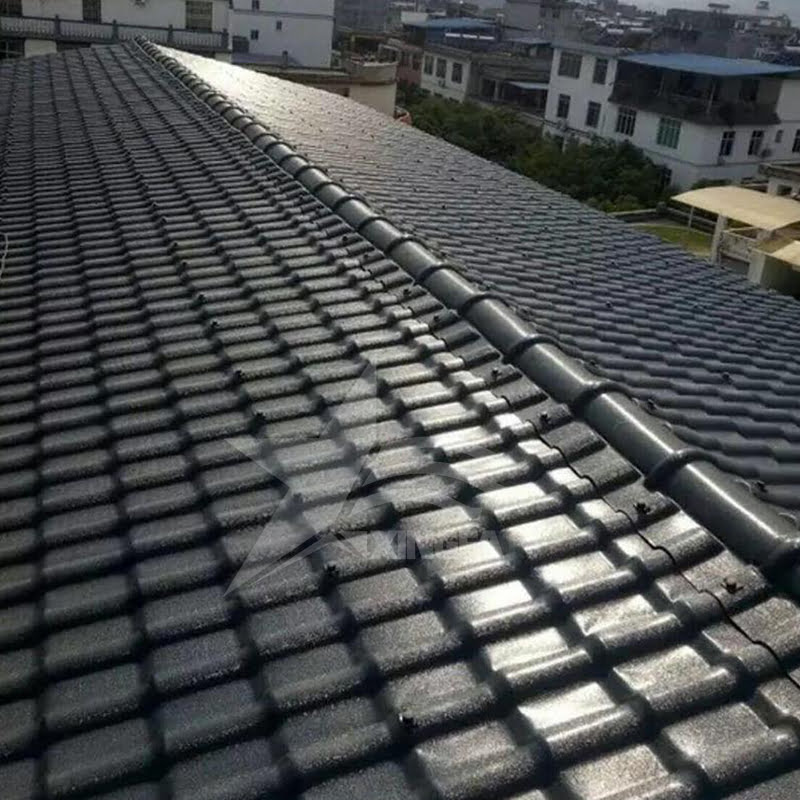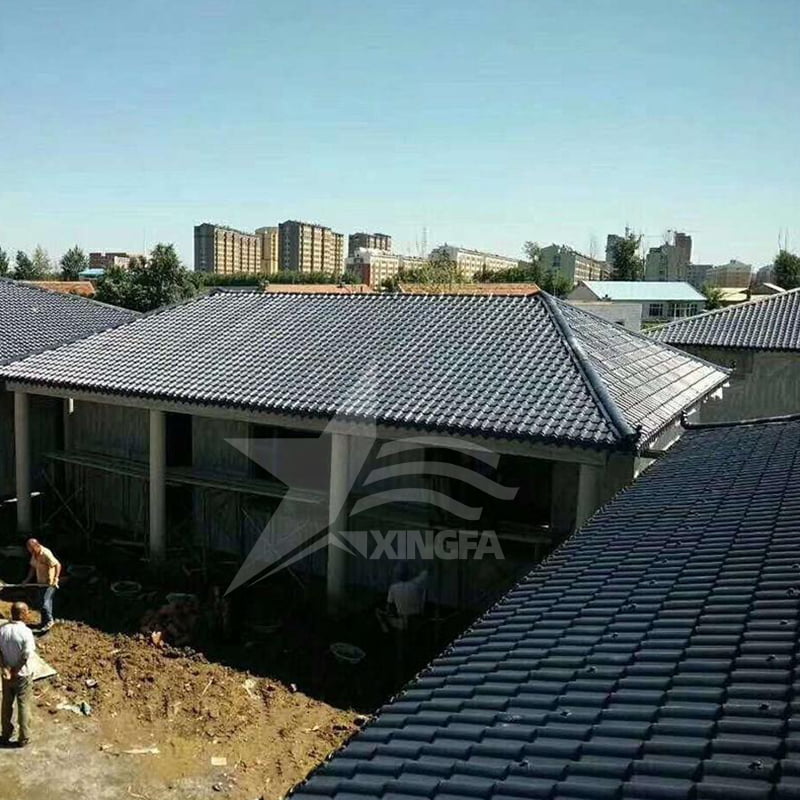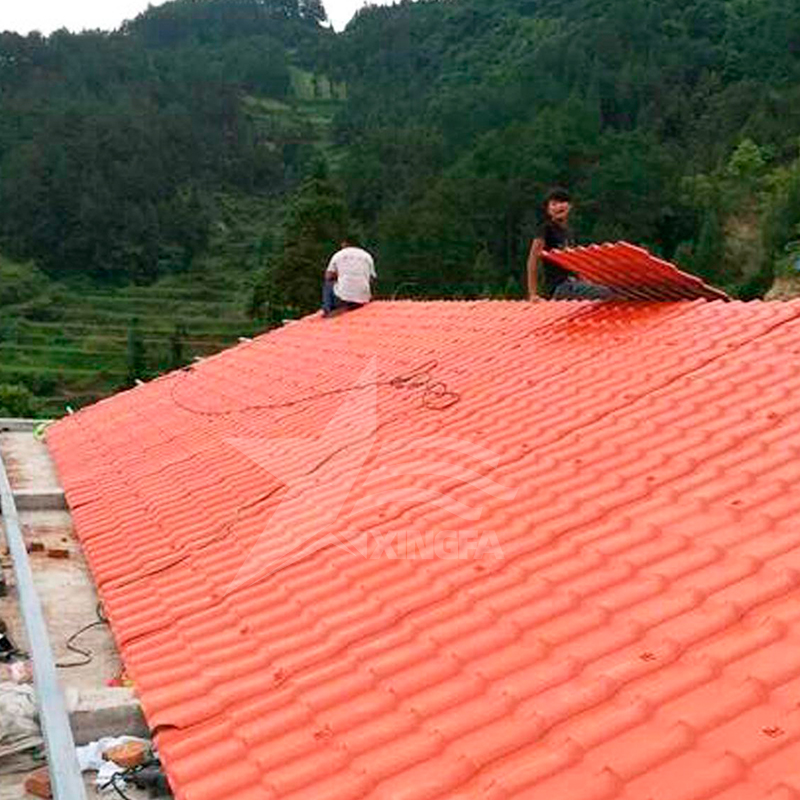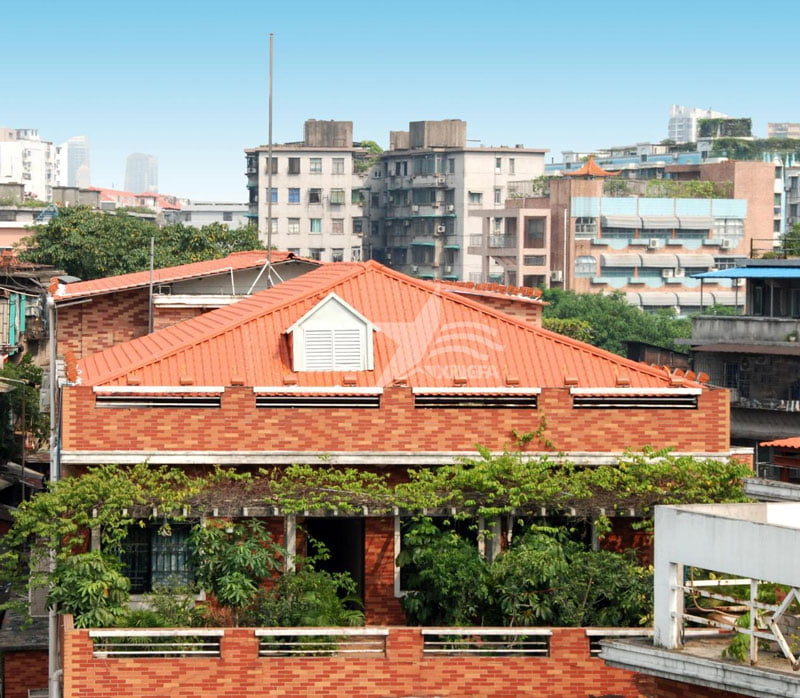In today’s building and roofing materials market, synthetic resin tiles are becoming an increasingly popular choice. However, as the market expands, many people begin to question the quality of synthetic resin tiles. One of the most common concerns is the cracking of these tiles.
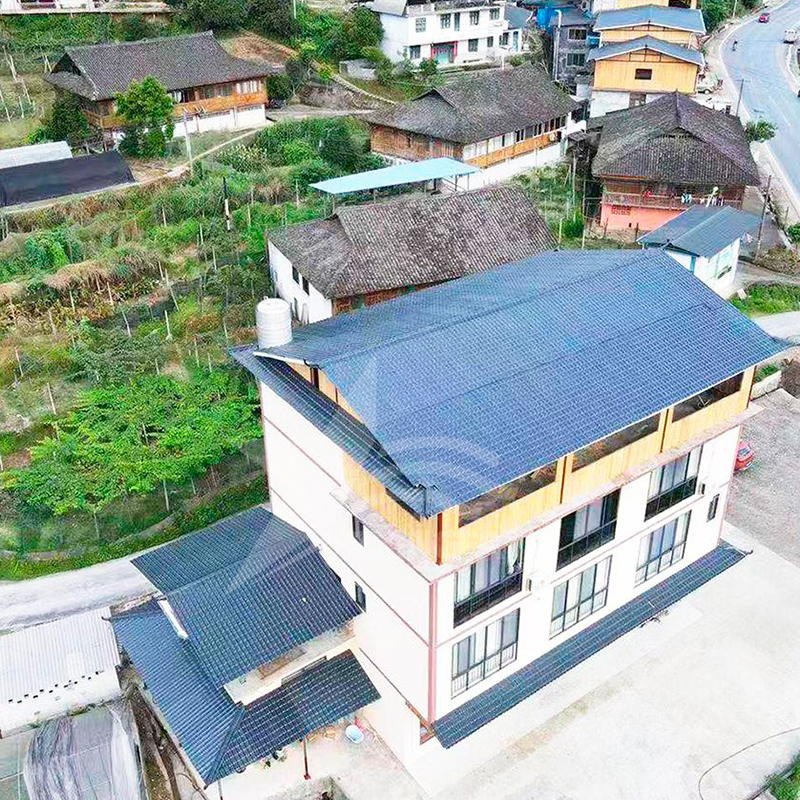
The cracking issue with synthetic resin tiles can generally be attributed to four main reasons:
- **High Water Absorption Rate**: When the raw materials of resin tiles have a high water absorption rate, it can lead to joint cracking. As moisture enters the tile, it can cause expansion and contraction during temperature changes or freeze-thaw cycles, resulting in cracks.
- **Material Hardness and Impact Resistance**: The hardness and impact resistance of synthetic resin tiles are crucial factors in preventing cracks. If the tiles are very hard but have poor impact resistance, they may crack when subjected to external forces.
- **Moisture Swelling Rate**: This refers to the degree of expansion the material undergoes when exposed to moisture. If the resin tiles have a high moisture swelling rate, they will absorb moisture and expand, leading to cracks.
- **Brittleness of the Material**: The brittleness of resin tiles is determined by their tensile and bending strength, as well as their ultimate stress. If these parameters do not meet the standards, the tiles are more likely to develop cracks under heavy loads or stress.

From the above reasons, it is clear that the main cause of synthetic resin tile cracking is the quality of the manufacturing materials. If manufacturers use low-quality materials, the resulting resin tiles will be inferior, with a shorter lifespan and a higher likelihood of cracking. Therefore, to avoid the hassle of cracked resin tiles, it is recommended to purchase certified products from reputable manufacturers to ensure you are getting a high-quality product.
